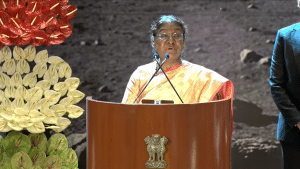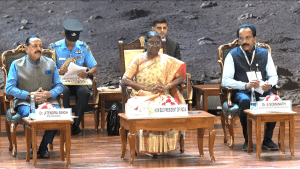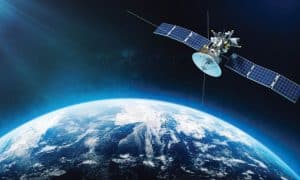There are as many as 130 million pieces of space debris larger than a millimeter orbiting the Earth, which poses a threat to global satellites, upon which the connectivity, communication, defense, finance, security, and weather forecasts depends heavily. At least once a week, a satellite or rocket body re-enters through the atmosphere.
As part of a package of initiatives to help ensure the long-term sustainability of the outer space environment, the UK Space Agency is leading work to develop UK capabilities in this area and demonstrate leadership in more sustainable space operations.
One such initiative is a UK national debris removal mission, planned for launch in 2026 and designed to be refuellable.
The UK Space Agency is inviting bids from UK organizations to develop feasibility studies to support the mission and the development of future capabilities.
George Freeman MP, Minister of State at the Department for Science, Innovation and Technology, said, “Millions of pieces of space debris and 3,000 redundant satellites pose an increasing threat to the satellite economy we now rely on daily – from telecoms to navigation, air traffic control and climate science. So it is vital that we act.
“This new £2 million UK Space Agency programme will help to develop ways to refuel inactive satellites in space. UK businesses like Astroscale and ClearSpace developing in-flight refueling, maintenance and other satellite servicing are key to reducing space debris, boosting space resilience and ensuring a vibrant space service economy.”
ALSO READ: Why Space Debris Mitigation is Important for Long-Term Sustainability
Ray Fielding, Head of Sustainability at the UK Space Agency, said, “This is an exciting opportunity for the UK space sector. In-orbit servicing is expected to be a key tool in ensuring the long-term sustainability of the outer space environment, so these refueling studies will support our desire to make satellite operation a lot more sustainable and demonstrate UK leadership in tackling the increasing risks caused by space debris.”
Richard Lowe, co-Chair of UK space In-orbit Service & Manufacture (IOSM) Working Group, said, “Satellites provide huge economic benefit for people here on Earth – but they’re currently limited to one tank of fuel! In-orbit refueling is a key technology that can extend the life of satellites. It can also enable development of more capable infrastructure in space and help us to reduce in-orbit debris. This investment paves the way for space services that deliver even more value than today in a much more sustainable way.”
Last year, Science Minister Freeman had launched a Plan for Space Sustainability, a raft of measures to demonstrate the UK’s commitment, ambition and drive to improve the UK’s sustainable use of space. The minister announced that the government is focusing on establishing new Space Sustainability Standard, with an aim to incentivize companies to adopt best practice in space sustainability and recognize those who are taking steps to minimize their footprint on the Earth’s orbit.
The UK government firmly believes that the growing volume of debris in space is both environmentally and commercially unsustainable, requiring swift action to clean up the Earth’s orbit as well as to ensure future projects minimize their footprint through recyclable manufacturing, retrieving satellites and mitigating any debris.
ALSO READ: PhilSA Takes Action to Mitigate Space Debris Threat









